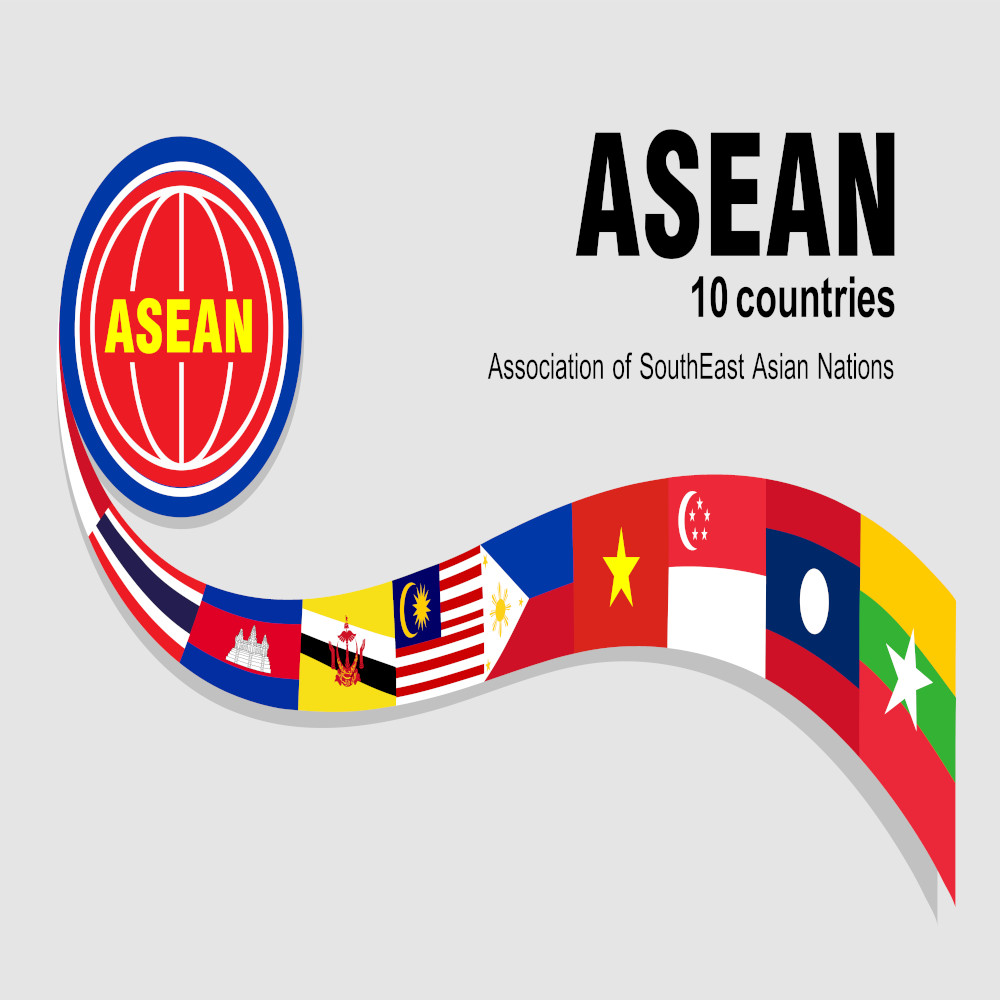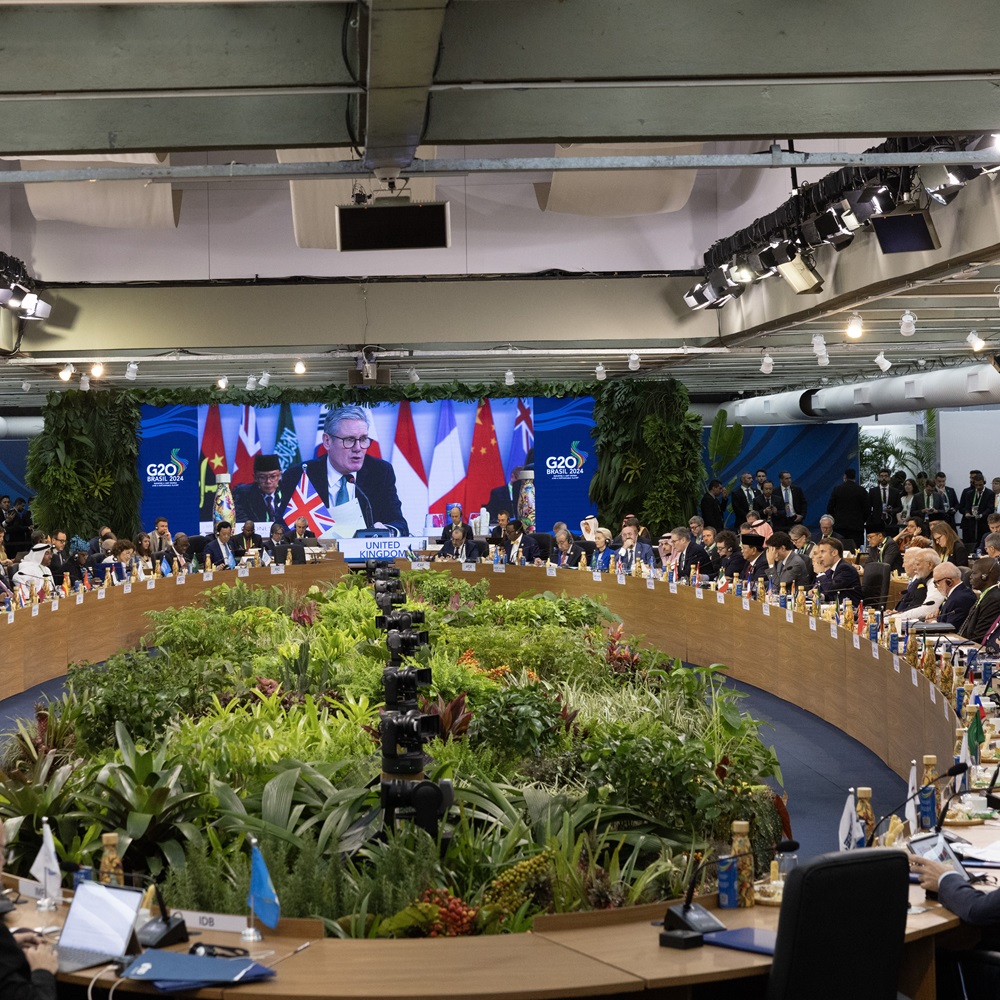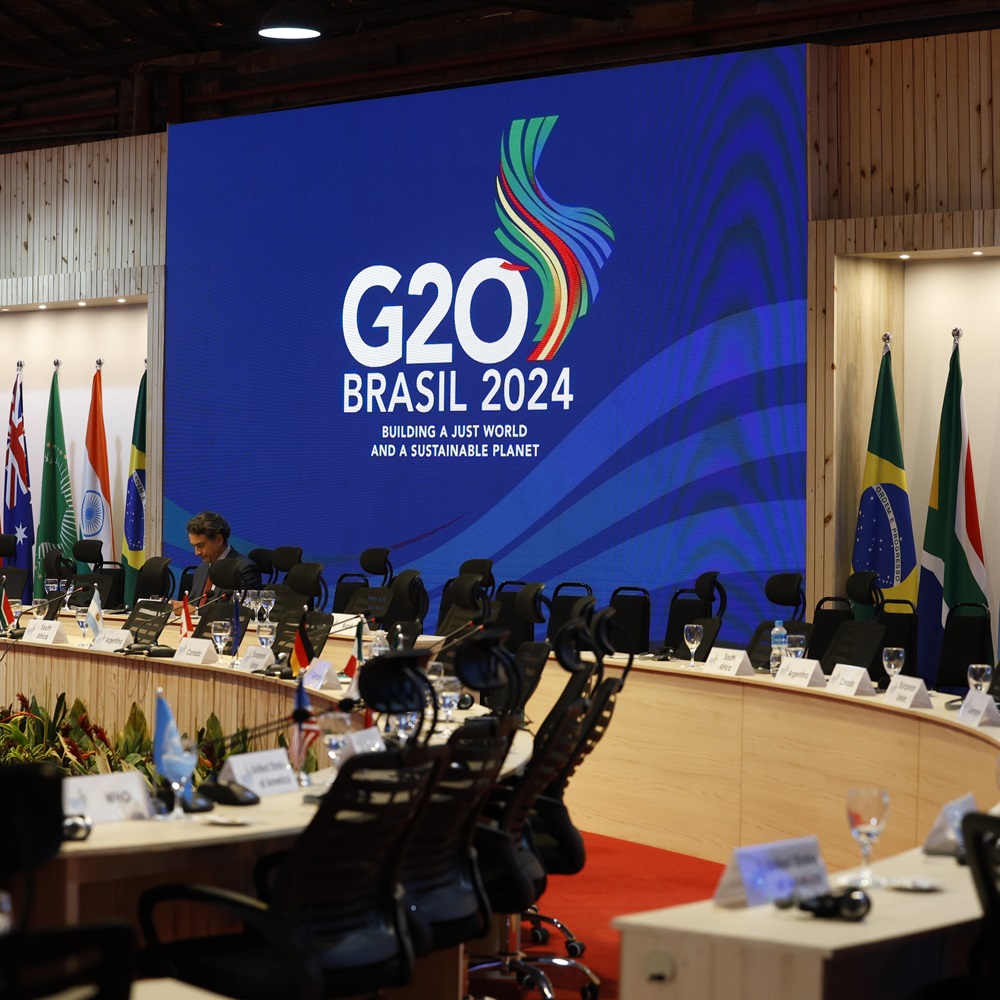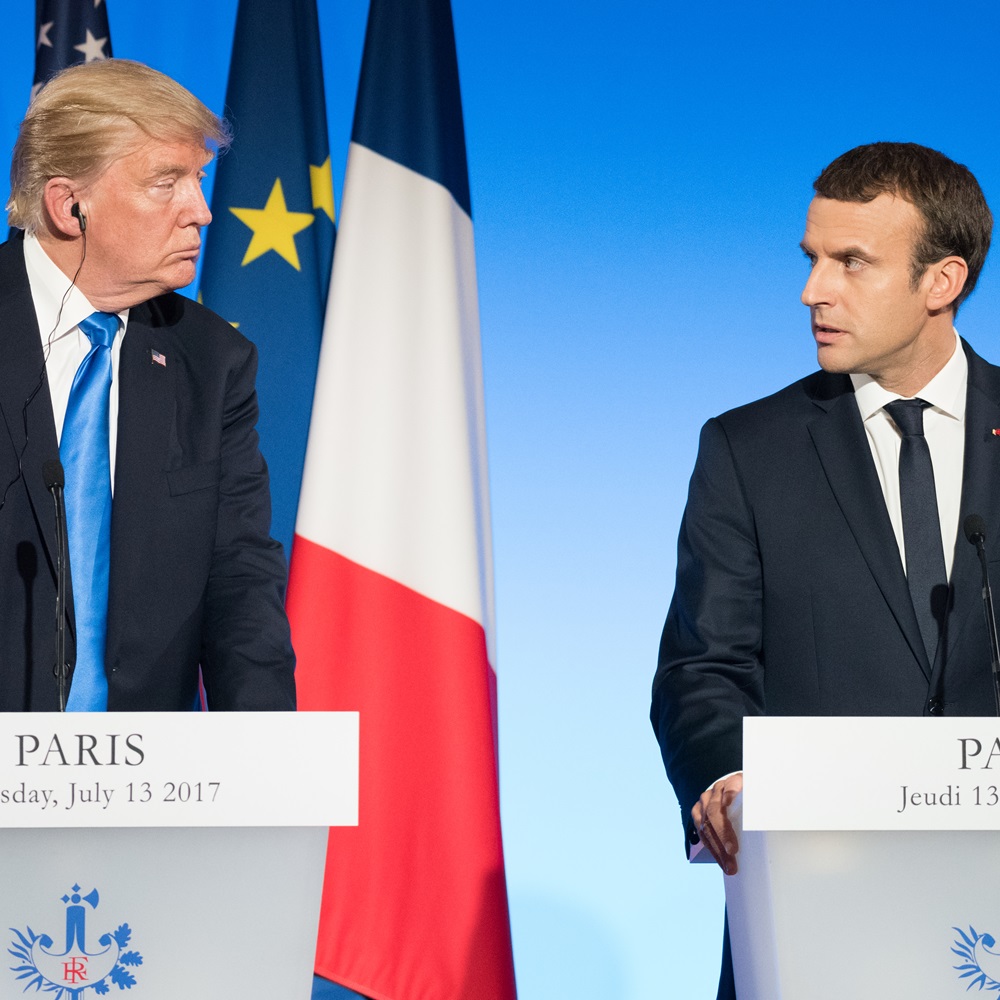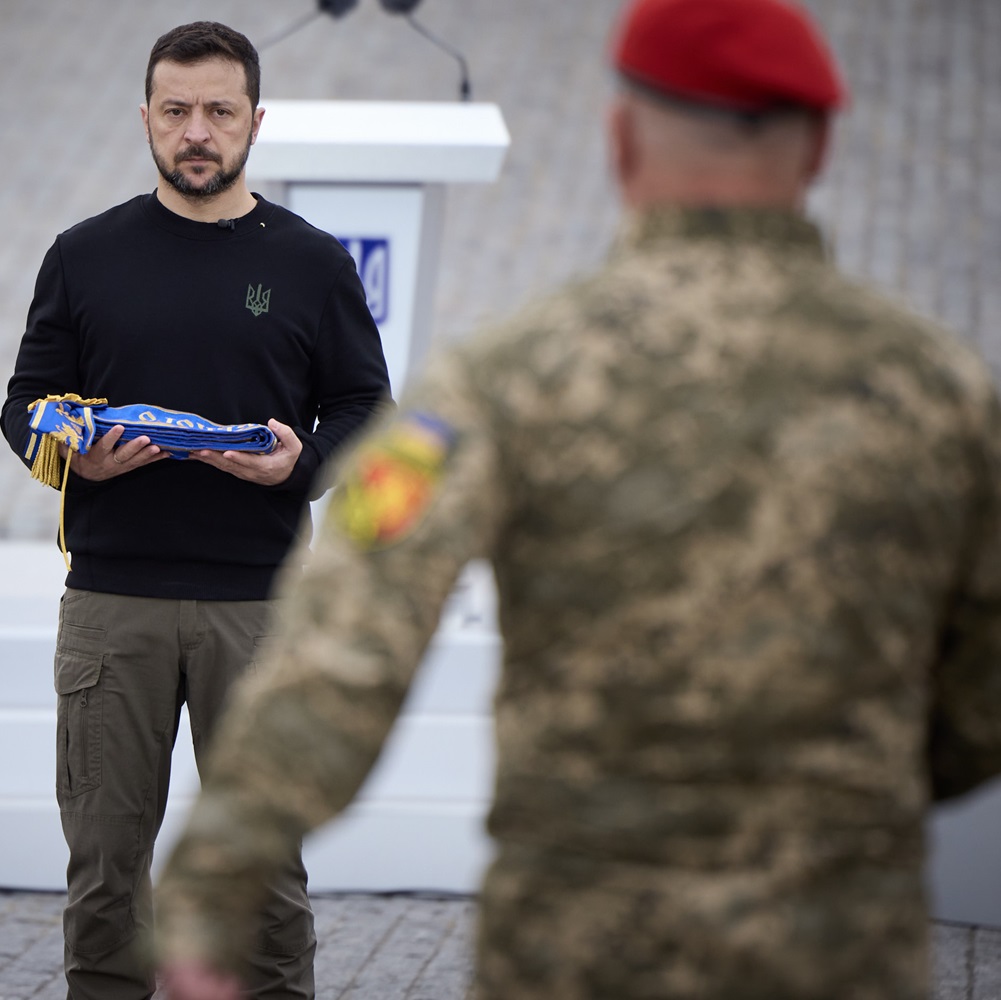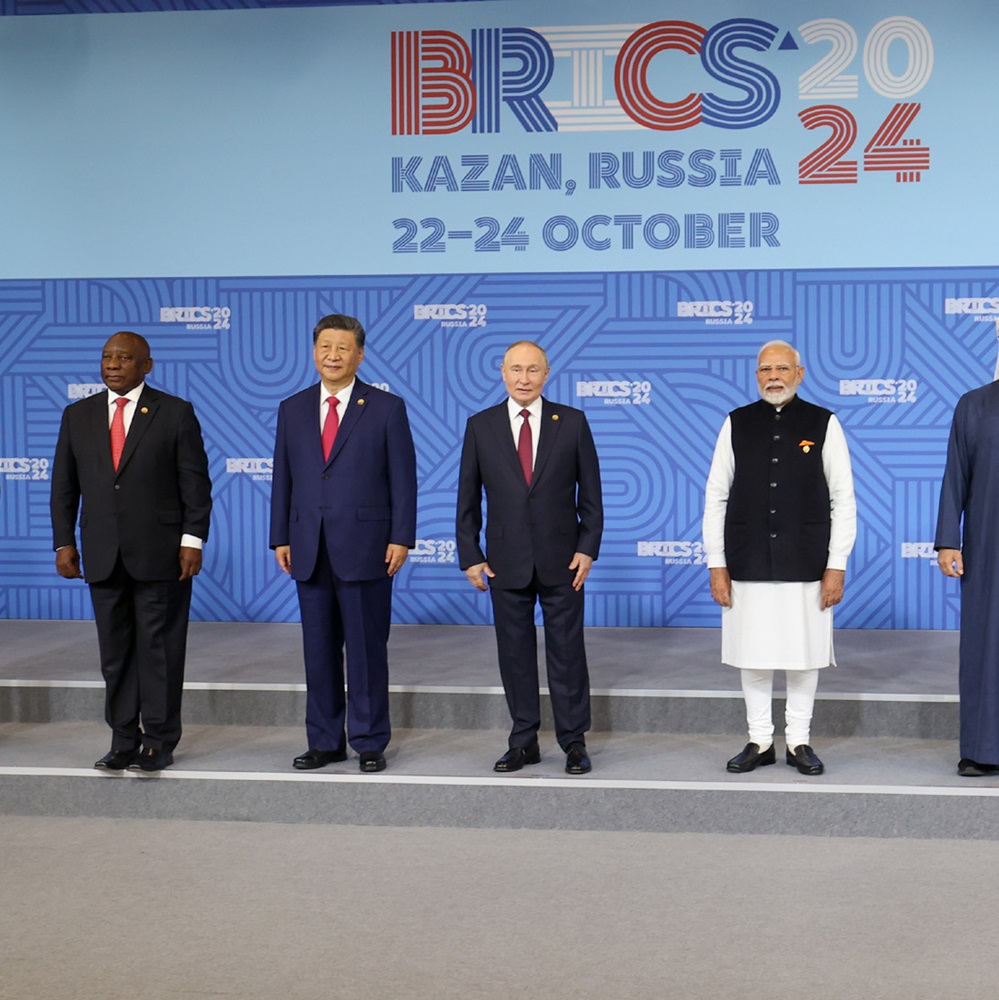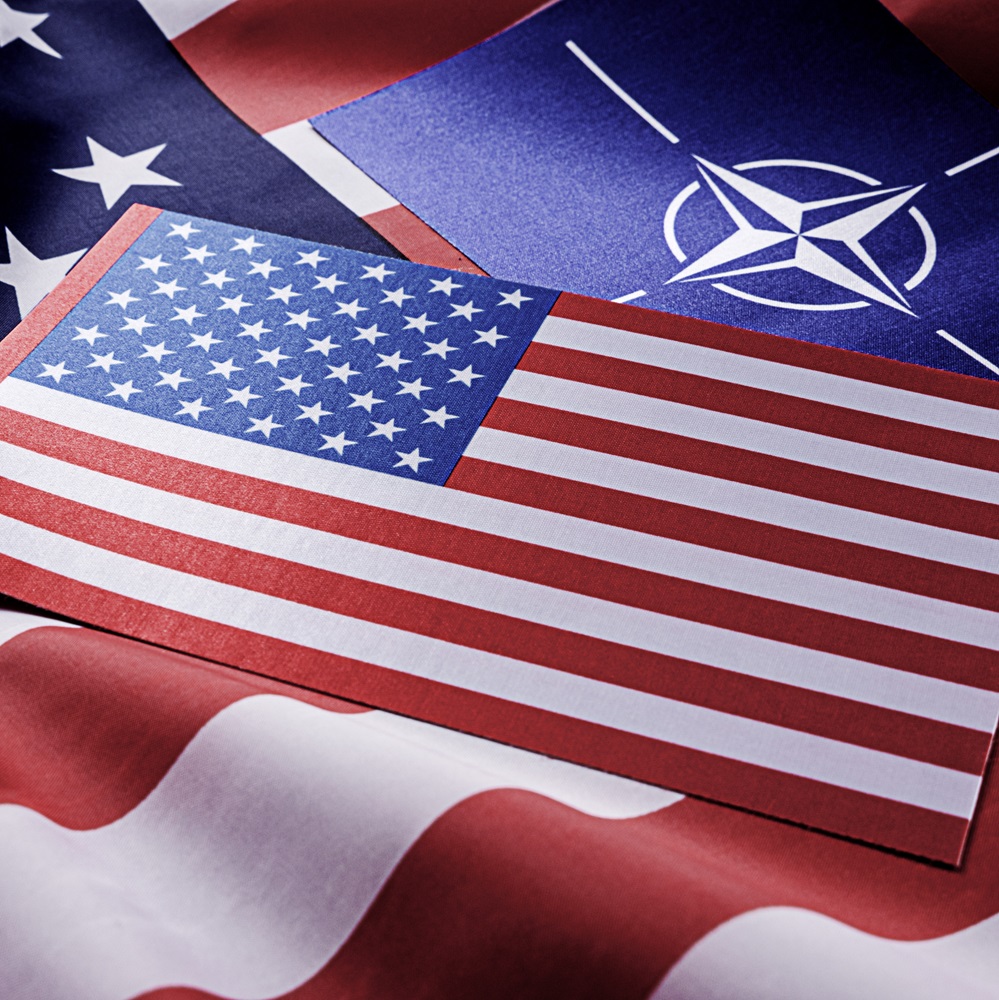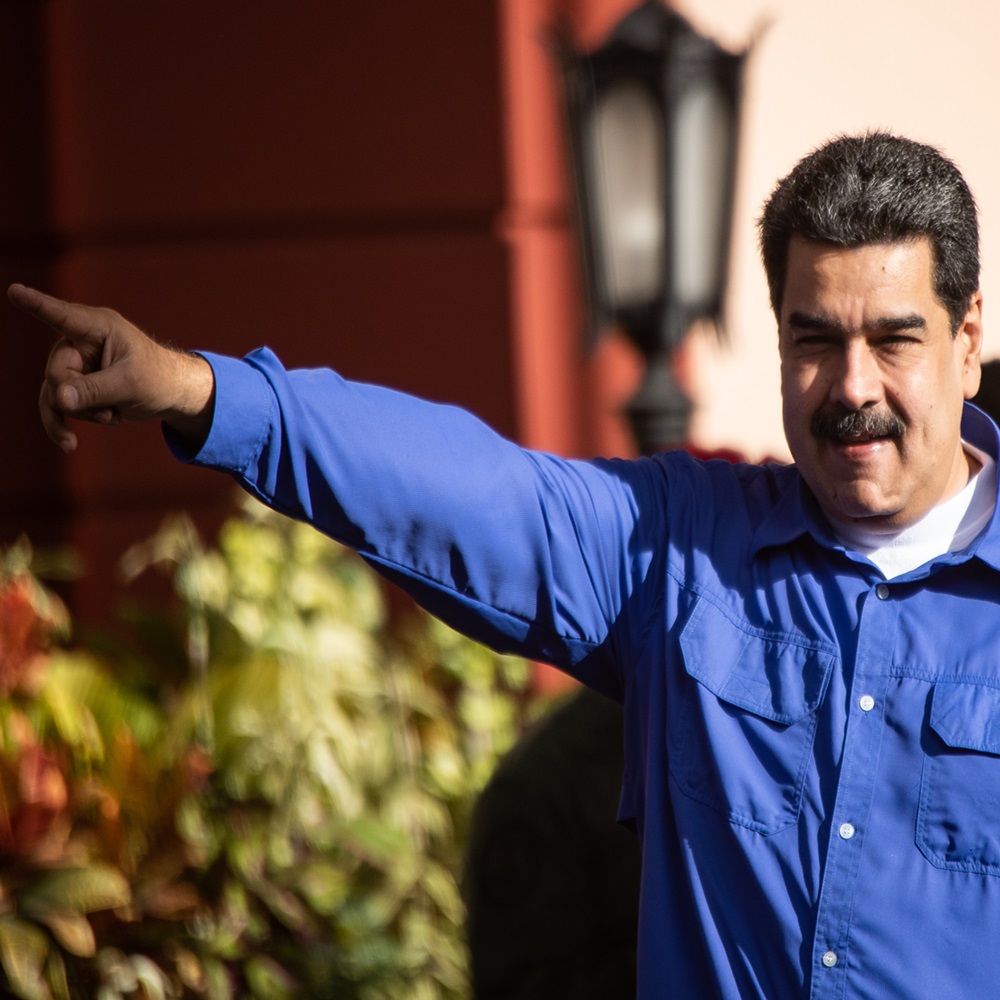The World From the Bottom Up or The Masterpieces of Eurasian Architecture
by Oleg Barabanov , Timofei Bordachev , Fyodor Lukyanov , Andrey Sushentsov , Ivan Timofeev
한국어로 읽기
Leer en español
In Deutsch lesen
Gap
اقرأ بالعربية
Lire en français
Читать на русском
If there is a central theme to this year, it is the world getting accustomed to the lack of predetermined scenarios. Discussions focusing on the international order are fading; the former order no longer functions, and there is no knowledge of what the new one, if it ever materializes, will look like. When the authors of an annual Valdai report suggested1 several years ago that order, as we know it, was unlikely to ever emerge, their hypothesis drew restrained comments at best. How can we do without order? However, the habit of living in a structured international system was formed recently by historical standards. Unregulated international relations have marked political history. These relations took shape in the process of interaction between the countries and quickly changed. What we now habitually call a multipolar or a polycentric world is reminiscent, in its form, of a return to an environment last seen before the Great War that broke out in the early 20th century. However, such parallels are misleading because international relations today are structured in a whole different manner. First, despite stark differences, the world remains an integral and interconnected place. Conflicts do not sever ties but warp them, quite badly at times. Second, compared to the turn of the 19th and the 20th centuries, or even 1945 when the most robust so far known global order was established, the number of significant players influencing international processes has increased by order of magnitude. That includes more than just major countries. Previous approaches to establishing the global balance through peaceful or military means are no longer effective, and the countries have yet to see innovative tools make their way to their arsenals. We will be compelled to make do with what we have and accommodate this toolset to deal with the changed circumstances. This will require everyone to re-interpret the ongoing developments and to forgo the stereotypes that defined our perspectives in the previous era. In last year’s report,2 we suggested that the impossibility of structuring international relations around a hierarchy-based approach would be a hallmark of the coming era. The ensuing events showed that things have indeed taken this course. Avert an all-out cold war. In 1945, when the international order that we view to this day as exemplary was emerging, writer and essayist George Orwell made a disappointing conclusion in his essay You and the Atomic Bomb3 to the effect that the formidable military capabilities of the countries with massive nuclear arsenals made perpetual cold war unavoidable. This goes beyond confrontation between them and includes − an even more consequential factor − their confrontation with other countries that do not possess weapons of mass destruction. In the hierarchy of international priorities, the relations between the great nuclear powers will always top other kinds of relations, and their conflict will prevent a system of cooperation, global or regional, from ever being created and will only allow creating a system of competition instead. All initiatives put forth by these powers bear the imprint of their relations with those who match them in destructive capabilities. Thus, international politics appeared to him doomed to a perpetual state of not a war, but “peace that is no peace.” So far, the fate of global stability has indeed been falling prey to differences among the most powerful countries, such as the United States, Russia, and China. But does this provide enough ground to believe we should “bear those ills we have than fly to others that we know not of?”4 Especially so since, even amidst intense confrontation, the world is not splitting into rivalling blocs as it did in the past century. The bloc system experience, like that of the Western community, is not replicated despite its perceived success. This suggests that binding alliances marked by ideology and stern discipline are an exception than the rule. There is no indication that other countries are seeking to form alliances like the West in terms of like-mindedness. New rules emerge from shifts in the balance of power and, if we take the modern-day world, the fact that small groups of countries are no longer able to tell the rest of the international community what to do. The drive for independence relying on mutual respect that we see in most countries around the world has become the structural foundation underlying an emerging regional and international order. Today’s situation is ironic. On the one hand, a profound shift is unfolding on the international stage. It is greater in size and depth than the previous one that took place in the late 1980s and early 1990s. On the other hand, these changes are not revolutionary by nature. They are not leading to collapse and evanescence, but rather to transformation of the erstwhile rules and norms. Truth be told, no one is really interested in seeing a radical scenario play out. The current and anticipated international escalation looks less like a premeditated strategy and more like an outcome of hare-brained actions or a lack of alternative ideas. The key point is that there is no going back, and what lies ahead will look nothing like recapitulation of the past. There is a demand for stabilizing mechanisms that would not only expand existing capabilities of the countries, but also function as safeguards against the woefully tragic scenarios, such as those playing out around Ukraine and in the Middle East. The search for such mechanisms will be most widespread in Eurasia, which is the world’s largest continent in terms of its territory and population. This is where the most favorable prerequisites for that have developed. Eurasia’s connection to the rest of the world is so deep that Eurasian processes will have a decisive impact on the other parts of the planet and on approaches to addressing crucial security and sustainability issues, such as food, energy, and the environment. Development of each means security for everyone From the particular to the general Building a Eurasian system of security cooperation, both as an ideal and a practical project, runs into numerous obstacles. Yet it is possible within this vast expanse, if the goals of each nation’s development can be prioritized over the factors that drive conflict and competition. In Greater Eurasia, conflicts impact only peripheral areas and do not go deep inside the territory, which means that preserving stability through leveraging new forms of security coordination appears quite achievable. Global events of the past three years clearly show that individual countries’ push to pursue diverse paths of development and to avoid confinement within specific blocs is stronger than the inertia of division along ideological or even strategic lines. Even at the peak of the ideological and military rivalry in the latter half of the 20th century, many “third world” countries chose not to align with either side of the binary universe, even though the two opposing blocs formed the core of international politics. This reluctance has become even more natural now that rivalries have lost their structured character, and the ideology-driven attempts to divide the world into democracies and autocracies are artificial to the point where they fail to hold up to the international real-world test. With varying degrees of confidence and assertiveness, most countries are upholding their right to their unique place in global affairs, aiming to determine their own paths to achieve their development and security goals. Modern history provides examples of cooperative initiatives aimed at shared prosperity, of which ASEAN is the best known one. Such cooperation is grounded in ruling out diktat in political matters and expanding practical interactions to address each country’s unique needs. These principles offer a starting point for reflections on what regional security might look like in the modern world. Collectively, regional security systems form a foundation of universal security. Eurasia’s security is inseparable from global security, which makes it particularly special. First, the security of Russia and China directly depends on their respective relations with the United States. This is a crucial element of international politics that defines its content. Accordingly, the strategic ambitions of the United States have a direct impact on Eurasian security. Furthermore, the western edge of Eurasia − Europe − remains part of the collective West and pursues its group interests. Europe’s future is a crucial factor which will affect international politics in the decades to come. Even though the era of Europe as the global center is ending, it remains an attractive partner for achieving development goals in other regions due to its economic power and technological capacities. The 2022−2024 events reinforced transatlantic ties and diminished Europe’s agency in international affairs, as the latter continued to follow unwaveringly in the wake of US politics. However, given the pace and scale of global changes, this situation may not last forever. The key Eurasian powers are operating on the premise that the positioning of Europe can shift in the coming years in the wake of the international system transformations, potentially drawing some European countries into embracing broader Eurasian projects. Second, the security of a group of Eurasian countries also makes up part of the collective security. Many of these countries find key financial, technological, and cultural resources for their development outside of Eurasia. They also play important roles in international politics and have influence on numerous developments around the world. Their global importance and involvement in the highest level “great game” ensure that they have a stake in maintaining peace in Eurasia. This helps explain the relative stability within Eurasia’s borders and supports the efforts to establish common security platforms in Eurasia. Notably, not a single major military conflict involving Eurasian countries has ever broken out after WWII (the western edge is an exception due to the European “zero-sum game” approach that has dominated that part of the world for centuries). The historical paths and itineraries across Eurasia and around it, which predate the Age of Discovery and European colonization, are being revitalized as the global political and economic system continues to diversify. Ironically, the punitive economic measures imposed by the United States and its allies on Russia help develop alternative global trade networks, promote economic flexibility and the search for alternative solutions. Third, Eurasia objectively covers a sizable portion of habitable land and is home to multiple civilizations and dozens of countries that accommodate 70 percent of the world’s population. It is no coincidence that this region intrigued classical geopolitical theorists who saw Eurasia’s Heartland as the center of global processes. Eurasian security is inseparable from global security, and its specific principles, mechanisms for country-to-country cooperation, and institutional forms can hardly be defined specifically for just one region. Eurasia is complex in terms of country-to-country relations, but holds vast potential, given its quest for a sustainable interrelations system and absence of obsolete institutions. It has the potential to develop alternatives to the principles and institutional forms of European security,5 which cannot be universal due to Europe’s unique cultural and historical background. The Helsinki framework, which created the Conference and then the Organization for Security and Cooperation in Europe (OSCE) was Europe’s most significant achievement in establishing security for all. However, the OSCE was unable to adapt to the new balance of power following the 1946–1990 Cold War, which spawned ongoing major military and political crisis in Europe. From the general to the particular Eurasia is a region that may give birth to a new concept of international security. This potential is supported by, on the one hand, its inseparability from global security and development issues and, on the other hand, by the countries’ interest in a stable environment that is free from existential threats. Eurasia’s position in the global economy does not require nations to unite solely to reap the benefits of unification, as is the case with the Western countries. However, the creation of well-defined geopolitical and civilizational barriers is unlikely in Eurasia. The continent’s vastly different experiences in new international trends may eventually provide a foundation for global transformation. Factors that underlie Eurasian security are the following: Recognition of the continent’s spatial integrity and the impossibility of drawing dividing lines there. Acknowledgment of shared interests and collective leadership. Political equality of all countries of the region, regardless of their size or potential. There are no revolutionary or revisionist countries in Eurasia that feel compelled to export their political systems (exporting socio-political models as the Soviet Union or the United States did) to survive. Radical ideas come not from the countries, but from transborder extremist groups. Containing and eliminating them is a common objective. The Eurasian regional security system aims to address issues separately from global security concerns which are, according to Orwell, dominated by relations between major nuclear powers, and to enhance the region’s resilience to external challenges, which implies resilience of each country. Defence against external threats and preventing internal conflict from getting worse are achieved through multilateral cooperation rather than rigid bloc discipline. A practical objective at hand is to identify external threats that will not force Eurasian countries into picking sides in an Orwellian Cold War with the involvement of nuclear powers. A shared understanding that independent countries form the basis of order helps articulate the core principle of mutual renunciation of any moves that may violate the region’s integrity and equality of the countries in that region. The core value lies in unconditional respect for each other’s socio-political systems and firm rejection of the efforts to change them. This approach may seem self-evident and is in stark contrast with the practices used in the 1990s–2010s when forceful transformation of sovereign countries with active external involvement up to military intervention was cast as a standard approach by Western political leaders. Sovereign equality enables justice, a concept that, while subjective, is central to international politics. Future international order will center on ensuring just relations, even if past institutions, which were designed to smooth power imbalances, get dismantled. The more the future rules can guarantee fairness, the more effective they will be at preventing armed conflicts. The collective goal is to uphold justice regarding the core interests and values of all Eurasian nations. Not like in Europe It is unrealistic to expect that the next stage will somehow replicate the circumstances which were typical of Europe in the past centuries or decades. Speaking of future regional security, it is essential to break free from traditional patterns of perception and all-too-familiar solutions. Unlike Europe where the interests of Russia and the West overlap, Eurasia lacks a common fundamental challenge that could be resolved by establishing a Helsinki-like model of collective regional security. In this case, there will be no opposing great powers or blocs, whose balance will prioritize interests. In Eurasia, there are no second-grade countries or second-grade interests, because even the largest countries are incapable of imposing their own rules on any other country. As we have seen, the balance of power underlying the European system cannot be considered a solution simply because major Eurasian countries do not compete in issues that are critical to their survival. In other words, the balance of power and influence between Russia, China, and India − even if tensions arise occasionally − does not affect their chances of survival or their chances to achieve their development goals. The differences implicating major Eurasian powers do exist, but they manifest on a global level of international politics. They are not of paramount importance in Eurasia, which is critically important when it comes to cooperation. Power and its emotions Even though Eurasia’s make-up is unique, and it is an integral part of the international system, it is not detached from the international context and historical patterns. After a period of high regulation and reliance on institutions (this order of things was established in 1945), international relations have reverted to the “original settings.” Power remains a key category, and the use (or the threat of use) of power is back in demand. Moreover, the emotions and personal qualities of leaders, combined with national strategic cultures, now shape interactions among major powers even more than the established order, norms, and rules that date back to the era of the bipolar face-off, which persisted throughout the transitional period. Fear and anger are two emotions that matter in international affairs. In addition to existing circumstances, they are identified in each case by a nation’s historical experience. Fear, ranging from apprehension to anxiety and dread, is one primary driver behind the countries’ behaviour.6 Anger, spanning from irritation and resentment to rage, also drives international relations and manifests itself in acts of retribution and violence that include terrorism. Fear and anger often drive not only political leaders, but entire societies as well. These emotions impact the way security is arranged and understood. Occasionally, countries are observing the evolution of international processes from a position of force and the position of force-derived emotions, such as tranquility and firmness. The sense of power is a vital driving force in relations among leading military powers. The basic emotions such as fear and anger, as well as tranquility rooted in the sense of one’s own superior strength once again, as in previous historical eras, determine the choice between two key strategies: annihilation and positional strategy.7 The annihilation strategy invariably relies on significant superiority in assets and military force, initiative-taking moves, and swift overpowering of an opponent. By contrast, the positional strategy concedes the initiative and allows the advancing party to act. It relies on the importance of concentrating and gradually building the resources up. Anyone employing this strategy avoids decisive battles for as long as they can and engages only when they believe they cannot lose. Typically, time favors those who employ positional strategy. Traditionally, most Eurasian countries prioritize the positional strategy. Classical Eurasian military thought is captured, for example, in the Chinese treatise The Art of War, which outlines the principles of positional strategy: “Thus the highest form of generalship is to balk the enemy’s plans, the next best is to prevent the junction of the enemy’s forces, the next in order is to attack the enemy’s army in the fi eld.”8 In Russia, patience and willingness to endure lengthy confrontations have always been part of the military and political tradition, which manifested itself, for example, in the tactic of medieval Moscow princes or the generals of the 1812 Patriotic War. These speculations are related to the ongoing international developments. Amid profound shifts in the balance of power, the United States, striving to maintain its hegemony, increasingly chooses offensive and provocative policies. This policy is not rooted in quiet confidence in its own strength but stems from anger and frustration at being challenged by its antagonists and resentment aimed at the internal opposition that underestimates the scale of this challenge. In addition to anger, there is fear and anxiety that the unfolding trends could lead to a scenario that is unfamiliar and unsettling for the United States where the balance of power will shift towards East. The clash of emotions is a hallmark of the post-institutional world. 9 A different conference Eurasia lacks conditions where any power can become dominant. This does not mean, however, that rivalry is out of the question here. Each power pursues its own interests, and balances of power will form over time and with difficulty. However, Eurasia’s advantage lies in the fact that − with few exceptions − there are no long-standing or deeply rooted conflicts between the countries overfilled with fear or anger. Major Eurasian powers do not have an objective need to be at feud with each other to achieve their vital goals. Vast and rich expanses of land can accommodate diverse cultures, civilizations, and foreign policy priorities. This is why Eurasia can reach a balance relying on a patient positional strategy rooted in quiet confidence, firmness, and mutual interest. The Eurasian collective security system cannot rely on the principles of a military alliance with clear-cut obligations. Bloc discipline or a rigid institutional structure are ruled out as well. As mentioned above, the model established in Europe in the 1970s as part of the pan-European process cannot be used, either. However, the concept of a “conference on security and cooperation,” which emerged back in the day, fits the Eurasian space well as a mechanism for ongoing multilateral consultations involving interaction on all issues. The key difference from Europe is that the CSCE/ OSCE was originally created to defi ne spheres of influence in Europe and later morphed into a tool to maintain Atlantic monopoly. Neither is a viable option in Eurasia. An equal distribution of responsibility for stability and security among Eurasian powers is based on forgoing any nation’s dominance. The principles of polycentricity, first outlined in the 1997 Russia China Joint Declaration on a Multipolar World and the Establishment of a New International Order,10 include non-interference in domestic affairs, respect for mutual interests, equality, and a commitment to a collective approach to addressing security issues, such as demilitarization of shared borders or provision of security guarantees to small and medium-sized buffer countries located between major powers. These principles are now taking on a multilateral dimension. The Eurasian security cannot rely on a closed architecture. It is embodied not in a single international organization, but rather in a network of bilateral and multilateral agreements and diverse associations that collectively cover all (not just military and political) aspects of collective security. Downsizing the presence of external forces, which leverage fears and anger of small and medium-sized countries to stir up tensions in Eurasia, and mitigating chances for their intervention is an important goal. The security system will focus on resolving all major conflicts with the involvement of regional actors. The mutual nuclear deterrence between major powers makes achieving absolute political goals an unviable proposition. Now is the time for relative victories; achieving an absolute victory is out of the question. All major conflicts that we observe in Eurasia, such as between Russia and the West, the United States and China, India and Pakistan, and Iran and Israel, to name a few, are rooted in positional confrontations, where a strategy of annihilation is fraught with high risks and is largely unproductive. The architecture of Eurasian security in its military and political and force-based aspect will rely precisely on the sense of quiet confidence in one’s strength and the general drift of international relations. Security and advantages Modern-day international security is a complex construct that transcends the military and political framework. Just like competition embraces all spheres of activity, including culture and the economy, so too does security with its compound nature. Common sense suggests that economic cooperation creates a foundation for confrontation-free political relations. However, things tend to be more complicated in the real world. The Russia-EU economic relations were remarkably strong. Even in 2022, trade amounted to $258.6 billion.11 The EU was Russia’s key trading partner and the primary market for its energy. Deeper integration, such as allowing Russian companies to own EU pipeline asset shares, or shares in individual companies, such as Opel, was held back for political reasons long before Ukraine crisis broke out in 2014.12 High trade volumes did nothing to prevent degradation, and the political dialogue collapsed. Russia-Ukraine relations were likewise marked by elevated levels of mutual dependency even after 2014. In 2021, trade amounted to $12.2 billion, which did not alleviate, but rather exacerbated political differences. A peaceful matter about exclusivity of economic relations with Europe dating back to the early 2010s led to an onset of a deep crisis that ended in an armed conflict. The highest level of economic interdependence between China and the United States (with trade hitting $690 billion in 2023)13 goes hand in hand with an escalation of political competition and Washington’s attempts to throw a wrench in China’s technological growth, including by way of imposing restrictive measures.14 Conversely, complex political relations between China and India are unfolding amid trade numbers in excess of $100 billion.15 Examples of the non-linear relationship between the economy and international politics, particularly in matters of security, abound. Economic benefits may create enabling conditions for political cooperation but cannot shield countries against confrontation when it comes to fundamental security issues. Politicization and ways to fight it. The modern-day world economy is highly globalized in terms of finance and trade. Globalization has significantly brought down costs, streamlined supply chains, and integrated multiple economies into technological and value-added chains, thus promoting their growth and modernization. The US dollar has become a convenient tool for making international payments and creating reserves, while technological platforms have brought countries together into a single economic organism. However, the “vital organs” of the global networks in the form of financial, technological, and communication hubs have remained under the jurisdiction of Western, primarily US, state bodies. The United States is losing credibility, because it takes advantage of economic interdependency networks for political gains, yet there are no full-fledged alternative solutions in sight.16 With the US dollar dominating the international scene, disconnecting individual companies or individuals from payments in dollars can result in heavy economic damage. According to SWIFT, the US dollar accounts for 48.03 percent of transactions handled by this international payments network, while the share of euro has plummeted to 23.2 percent.17 Blocking financial sanctions feature prominently in the US toolset, and are widely used by the European Union, the United Kingdom, Canada, and other countries as well. Russia has become a primary target for such measures, although individuals from Iran, North Korea, China, and even US allies and partners like Türkiye or the UAE are also on the receiving end of these sanctions, albeit to a lesser extent. Trade and technological ties have become hot-button political issues as well. Sanctions on Russia include sweeping bans on exports and imports. US legislation imposes export control compliance on countries that use US-made technologies, manufacturing equipment, and software. Import restrictions cover Russian petroleum, refined products, gold, diamonds, steel, and other products. Export controls regarding China, especially in electronics and telecommunications, are tightening. Chinese electronic services are banned in the United States and some companies face contract restrictions in Western countries. Iran is under a total exports and imports ban, with even stricter bans imposed on North Korea. Even EU companies are forced to comply with the US export controls to avoid secondary sanctions. Transport and digital infrastructure are affected as well. Tools include setting price thresholds for transporting Russian oil, sanctions for sizable transactions with Iran’s oil sector, and restrictions on the use of maritime space and airspace, ports, airports, gateways, and other infrastructure facilities. Sanctioned individuals are cut off from access to what are now customary services, such as email, audio, and video file aggregators, not to mention more applied online solutions in the sphere of engineering and other technical areas. The targeted countries do provide a response. Russia and China have incorporated instruments to block financial sanctions into their legislation. Russia has imposed a ban on exports of manufacturing equipment and has implemented extraordinary measures against economic agents from unfriendly countries. China is implementing a “dual circulation” system in strategic economic areas and investing in developing its own technology. Iran and even more so North Korea have long lived under partial or near-total autarky. The US allies are pondering diversification of financial assets. Back to market The above developments have become quite widespread and continue to expand. They transfer the cutthroat zero-sum-game-like military and political competition to the economy. It cancels market principles that are based on mutual advantages. With the economic ties and interdependence networks weaponized, severing such ties or at least diversifying them appears a sensible response. Even if such steps are deficient from a market perspective, they are inevitable as a means of mitigating security risks. Diversifying financial settlements implies using currencies other than the US dollar. National currencies partially address this issue. Using the renminbi in trade with China is a rational choice given the availability of a vast Chinese market. However, difficulties with investing rupees arise when it comes to Russia-India trade. Even more challenges arise from trade with less developed or more specialized economic systems. Strategically, a more universal mechanism is needed that could be used by several major economies, a BRICS mechanism. The quest for ways to diversify payments is ongoing but expecting to see a “BRICS currency” emerge any time soon is premature for technical reasons, among other considerations. A better path is not to introduce an alternative reserve “anti-dollar,” but to create diverse bilateral or multilateral settlement arrangements that can bypass the US financial service monopoly. Russia is at the forefront of these efforts given its economy size and the number of sanctions imposed on it. The same applies to creating innovative technological chains and domestic production capacities, as well as looking for alternative suppliers of manufactured goods and technologies. More recently, we had the chance to witness critical vulnerabilities when it comes to using products that include Western-made components. The domestically made substitutes can be less effective and more expensive but are unparalleled in terms of security. Amid bans and restrictions, such alternatives provide a solution, as does searching for replacements in other markets. Today, we see new chains pop up in places where they could hardly be expected to exist just a few years ago, especially when it comes to Russia-China relations. The US stick policy has defeated its purpose when economic agents around the globe became more ingenious and improved their economic flexibility. The infrastructure constraints have spurred the emergence or scaling of various phenomena, including “shadow” tanker fleets, alternative insurance systems, exchanges, communication, and online communication services. Large transport projects in Eurasia are back on the agenda. Progress can be clearly seen in the North-South corridor. Moving such initiatives forward and creating a single system across the Eurasian region is a challenge, since Eurasian countries vary among themselves and maintain different relations with the United States and the Western countries. Significant economic disparities are also a factor to be reckoned with. More likely, such a system might incorporate a multitude of decentralized bilateral and multilateral formats and include financial tools for transactions between individual countries, as well as settlement systems for international associations such as BRICS, technological projects in niche areas, and targeted infrastructure solutions. However, the number of such innovations will inevitably give rise to qualitative changes. The Eurasian economy will inevitably move away from the nets of West-centric interdependence which are being used as weapons. There is no need to forget them, but there is a need for backup tools as safeguards against arbitrary politicization. Eurasian economic security can be a flexible and decentralized set of mechanisms to reduce “dependence on interdependence.” While this may seem strange now, Eurasia could indeed become a flagship in global processes for returning to a much more market-based system of economic ties. Trust without coercion Peaceful and productive relations between countries, whether bilateral or multilateral, can only be built on trust, which holds equally true for the prospects of development and matters of security. What underlies trust in international relations? The Western answer to this question emphasizes cultural and ideological homogeneity, with the North Atlantic Alliance as a product of this approach. Modern Western countries display a strict bloc (self-)discipline about key international issues, which can be seen in their voting as one at the UN General Assembly and the G20, as well as their unified policies. Those who break the ranks, if any, are quickly put back in their place. On the face of it, this approach presents a competitive advantage in a multipolar world, which is further proof of internal strength. However, it lacks flexibility and is marked by ideology-driven dogmatism, which is an irritant for the non-Western world. The World Majority countries18 (a term used in Russia to refer to non-Western Global South and Global East countries) do not have to follow bloc discipline. In the face of acute geopolitical conflicts that seek to split the modern world, this can be perceived as weakness, which fact is occasionally exploited by our Western counterparts, for example, on the G20 platform. However, this phenomenon should be approached differently: as a striving of various countries to achieve ultimate flexibility, which will allow them not to limit their options and to attract every development resource within their reach. An important question arises in this regard, though: how can relationships be built within a diversified community torn by numerous contradictions? The tradition of independent cooperation among non-Western countries spans decades, and is rooted in the 1955 Bandung Conference, where the countries then categorized as part of the Third World or the Non-Aligned Movement proclaimed shared goals and objectives. The declaration affirmed a commitment to the common cause of resisting Western colonialism and imperialism, recognized the equality of all participants regardless of differences between them, and promoted shared interests in the name of development. Later, ASEAN adopted a similar set of principles, which has now made its way to BRICS and the SCO platforms. Similar processes are observed in Africa as well. The Organization of African Unity (OAU) was based on shared values and objectives facing African countries, such as opposing colonialism and neo-colonialism. Statements by the OAU founding figures come to mind. Julius Nyerere, the first president of Tanzania, had the following to say: “Only with unity can we be sure that Africa really governs Africa.”19 In his opening remarks at the 1963 summit in Addis Ababa, where the OAU was founded, Emperor of Ethiopia Haile Selassie I also emphasized the importance of unity and setting aside individual differences to achieve solidarity: “Unity is the accepted goal. We argue about means we discuss alternative paths to the same objectives; we engage in debates about techniques and tactics. But when semantics are stripped away, there is little argument among us. We are determined to create a union of Africans.”20 This keynote address also highlighted the direct link between Africa and Asia: “We stand united with our Asian friends and brothers. Africa shares with Asia a common background of colonialism, of exploitation, of discrimination, of oppression. At Bandung, African and Asian states dedicated themselves to the liberation of their two continents from foreign domination and affirmed the right of all nations to develop in their own way, free of any external interference. The Bandung Declaration and the principles enunciated at that Conference remain today valid for us all.”21. Much has changed since the Bandung and Addis Ababa conferences, and the world has changed out of recognition as well. Yet, the principles and goals declared there have not only remained relevant, but are now getting a second wind, especially because they imply mutual trust. As we sum up the experiences of Asian and African countries, we can pinpoint several principles that have been tested and approved by political practices in the non-Western world. First: Recognizing a common goal, which unites different countries, and advancing towards it is an undeniable priority of their policies. Second: Recognizing that differences should not hold back progress towards common goals. Third: Acknowledging the fact that differences will not vanish. Each country has its unique specifics and a path to follow. Trust implies tolerance for differences and trade-offs to make sure differences do not lead to conflict. Fourth: Flexible institutional and procedural mechanisms. The combination of trust and acknowledgment of differences takes rigid institutional frameworks and restrictions off the list of priorities. Coexistence and intertwining of different structures with various formats of membership and commitments thus becomes the practical outcome. Fifth: Gradual internal consolidation fostering the necessary conditions. Sixth: Strengthening trust-based solidarity among the World Majority countries. Seventh: Commitment to seeking local solutions to regional problems and addressing global issues as a sum of regional approaches to ensure that individual countries’ right to development is not hostage to new global constraints. This path is longer and more complex than conventional bloc discipline, but, in an increasingly diverse world, it may be the only viable path, as fewer countries out there are willing to align in a single column. Is agreeing on the world order principles possible? The post-World War II era brought forth new, never used approaches to structuring the international political and economic system. The achievements of the then created institutions are undeniable, yet no product is everlasting. The ongoing profound transformation of the global landscape calls for an effort to deeply rethink the accumulated experience rather than discard it. The events of the second quarter of the 21st century will not draw a line under the previous world structure but will pave the way to enhance and to adapt it to new realities. After all, the ideals that guided the architects of the post-war world remain in force and align with the global trends. An open world space that ensures the rights to peaceful development, prosperity, and self-realization for all nations and countries is a shared goal in today’s world. In fact, we are now much closer to this goal than we were eighty years ago when the post-war order was being discussed. Back then, much of the world was still under colonial rule, and major powers were entrenched in systemic ideological confrontation. Today, neither of these conditions exists, though remnants of the past are still there. Addressing these remnants should be part of the efforts to create a renewed world architecture. The emergence of new global organizations is highly unlikely. However, at the level of large regions, unilateral efforts will be insufficient, and the push for more stable forms of cooperation is likely to prevail. Currently, new constructs of that kind − the Shanghai Cooperation Organization, the Eurasian Economic Union, the Organization of Turkic States, and the Belt and Road Initiative − are being tested in Eurasia. All these initiatives, as well as any existing or future ones, are experimental in nature. Time will tell how effective and functional they really are. In the future, universal regional platforms might be able to encompass different cooperation institutions in specific areas whose objectives will not conflict with one another. In the middle of the 20th century, the world was built from the top down, from the peak of the hierarchical pyramid down to its base. The new system will not be that consistent, but it will be far more democratic. It is being built from the bottom up and relies on self-organization and cooperation between countries within individual regions, where they must jointly address pressing, practical issues. If humanity avoids making the mistakes that will set it back as was the case in the past, then practical interaction at the regional level will give rise to a new system that will capture the planet’s complexity and diversity and be able to transform these qualities from obstacles on the way to development into a foundation for growth. References 1: Oleg Barabanov, Timofei Bordachev, Yaroslav Lissovolik, Fyodor Lukyanov, Andrey Sushentsov, Ivan Timofeev. Living in a Crumbling World. Valdai Club Annual Report. October 15, 2018. URL: https://valdaiclub. com/a/reports/living-in-a-crumbling-world/ 2: Oleg Barabanov, Timofei Bordachev, Yaroslav Lissovolik, Fyodor Lukyanov, Andrey Sushentsov, Ivan Timofeev. Maturity Certificate, or the Order That Never Was. Valdai Club Annual Report. October 2, 2023. URL: https://valdaiclub.com/a/reports/maturity-certifi cate-or-the-order-that-never-was/ 3: Orwell G. You and the Atomic Bomb // Tribune, October 19, 1945. 4: William Shakespeare, Hamlet. 5: For four hundred years, the latter has served as a global security system: the Westphalian rules of the game, the balance of power, and Metternich’s rule, which holds that international security is achieved when one country considers the security concerns of another country as its own. 6: Pace M., Bilgic A. Studying Emotions in Security and Diplomacy: Where We Are Now and Challenges Ahead // Political Psychology. 2019. Vol. 40. No. 6. Pp. 1407–1417. Lebow R.N. Fear, Interest and Honour: Outlines of a Theory of International Relations // International Affairs. 2006. Vol. 82. No. 3. Pp. 431–448. 7: Стратегия в трудах военных классиков. Edited and commented by A. Svechin. Moscow, 1924; Carr A., Walsh B. The Fabian Strategy: How to Trade Space for Time // Comparative Strategy. 2022. Vol. 41. No. 1. Pp. 78–96. 8: From the treatise The Art of War commonly attributed to the legendary military commander and strategist Sun Tzu (6th-5th century BC). 9: Dominique Moisi. The Clash of Emotions. January 31, 2007. URL: https://www.ifri.org/en/external-articles/ clash-emotions 10: Russia-China Joint Declaration on a Multipolar World and the Establishment of a New International Order. URL: https://docs.cntd.ru/document/1902155?ysclid=m27d9a94wj720511004 11: Товарооборот между Россией и ЕС оказался максимальным за восемь лет. March 7, 2023. URL: https://www. rbc.ru/rbcfreenews/6406ceed9a7947b3912b3c98?ysclid=m0l0zgm3hl844648897 12: Беликов Д., Егикян С. Magna и Сбербанк прокатили мимо Opel. November 5, 2009. URL: https://www.kommersant.ru/doc/1268884?ysclid=m0l145995v673478546 13: Козлов А. Объем торговли США и Китая обновил исторический рекорд. February 10, 2023. URL: https:// www.vedomosti.ru/economics/articles/2023/02/10/962429-obem-torgovli-ssha-i-kitaya-obnovil-rekord 14: Тимофеев И.Н. Политика санкций США против Китая: сравнительный анализ //Мировая экономика и международные отношения. 2023.Т.67, №11. p. 70–79. 15: СМИ: Китай стал главным торговым партнером Индии в 2023–2024 финансовом году May 13, 2024. URL: https://tass.ru/ekonomika/20778213 16: See more about the phenomenon of weaponising interdependence in: Farrell H. and Newman A. Weaponized Interdependence. What Global Economic Networks Shape State Coercion // International Security. 2019. Vol. 44, No 1. P. 42–79. 17: Доля доллара в расчетах через систему SWIFT достигла рекордного уровня в 48%. September 28, 2023.URL: https://www.kommersant.ru/doc/6239234?ysclid=m0l1mzg1fu656162416 18: The World Majority and Its Interests. Valdai Club report, ed. by Timofei Bordachev. October 10, 24, URL: https://valdaiclub.com/a/reports/the-world-majority-and-its-interests/ 19: Quotable Quotes of Mwalimu Julius K. Nyerere / collected from speeches and writings by Christopher C. Liundi. Dar es Salaam: Mkukina Nyota Publishers. 2022. P. 68. 20: Important Utterances of H.I.M. Emperor Haile Selassie I. 1963-1972. Addis Ababa: The Imperial Ethiopian Ministry of Information. 1972. P. 352. 21: Ibid. P. 361–362.
